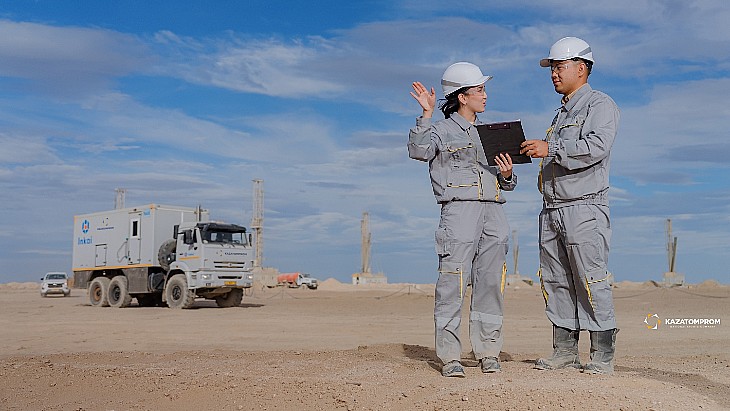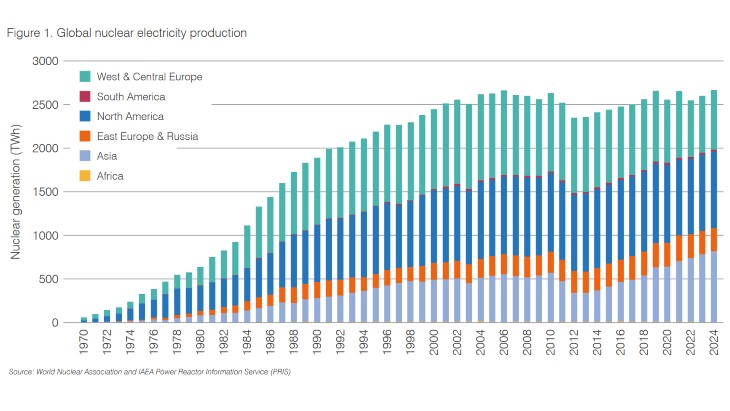Areva has historically paid a share of profits resulting from uranium mining to the government of Niger, based on notional prices. Last week the annual deal to set the rate was struck, increasing it from 27,300 CFA francs per kg of uranium concentrate (U3O8) to 40,000 ($26/lb to $38/lb). That price would apply to all uranium business in 2007 as an extraordinary measure, with a new rate in effect from 1 January 2008.
The spot price of U3O8 increased dramatically during 2007 from around $72/lb to a high of $138/lb. It has since dropped to $120/lb.
In addition, Areva has reportedly agreed to pay an advance dividend on the increase in profit share of $32 million, and to giver Niger authorities 300 tonnes of uranium to sell on the international market.
The changes come after a series of troubles for uranium concerns in Niger. In April, fighters from the Movement of Niger People for Justice (MNJ) attacked the Imouraren mine, operated by Areva, killing a guard. In early July the group held an executive from a Chinese-founded uranium prospecting company for several days.
Later in July, an Areva executive was refused re-entry to Niger amid accusations that the company had links to the MJN. A security advisor to Areva was also expelled on similar grounds.
Much high-level diplomatic effort was reportedly needed to resolve the subsequent animosity between France and Niger, drawing comments from presidents Nicholas Sarkozy and Mamadou Tandja, and foreign ministers Bernard Kouchner and Aichatou Minadaoudou. Areva consistently dismissed all Niger's accusations as baseless, while French officials appealed for the facts to be known.
The MJN is a militant group formed by Tuareg nomads that Reuters report has killed at least 36 soldiers since February. While described by the government as bandits, the MJN claims the government is failing to implement a 1995 peace treaty meant to end tribal rebellion in the north of the country. The MJN is also angry that uranium companies have employed people from the south of the country, rather than locals.
Further information
WNA's Uranium in Niger and Gabon information paperWNN: Nuclear executive kidnapped in Niger




_49098.jpg)
_57190.jpg)
_70526.jpg)





